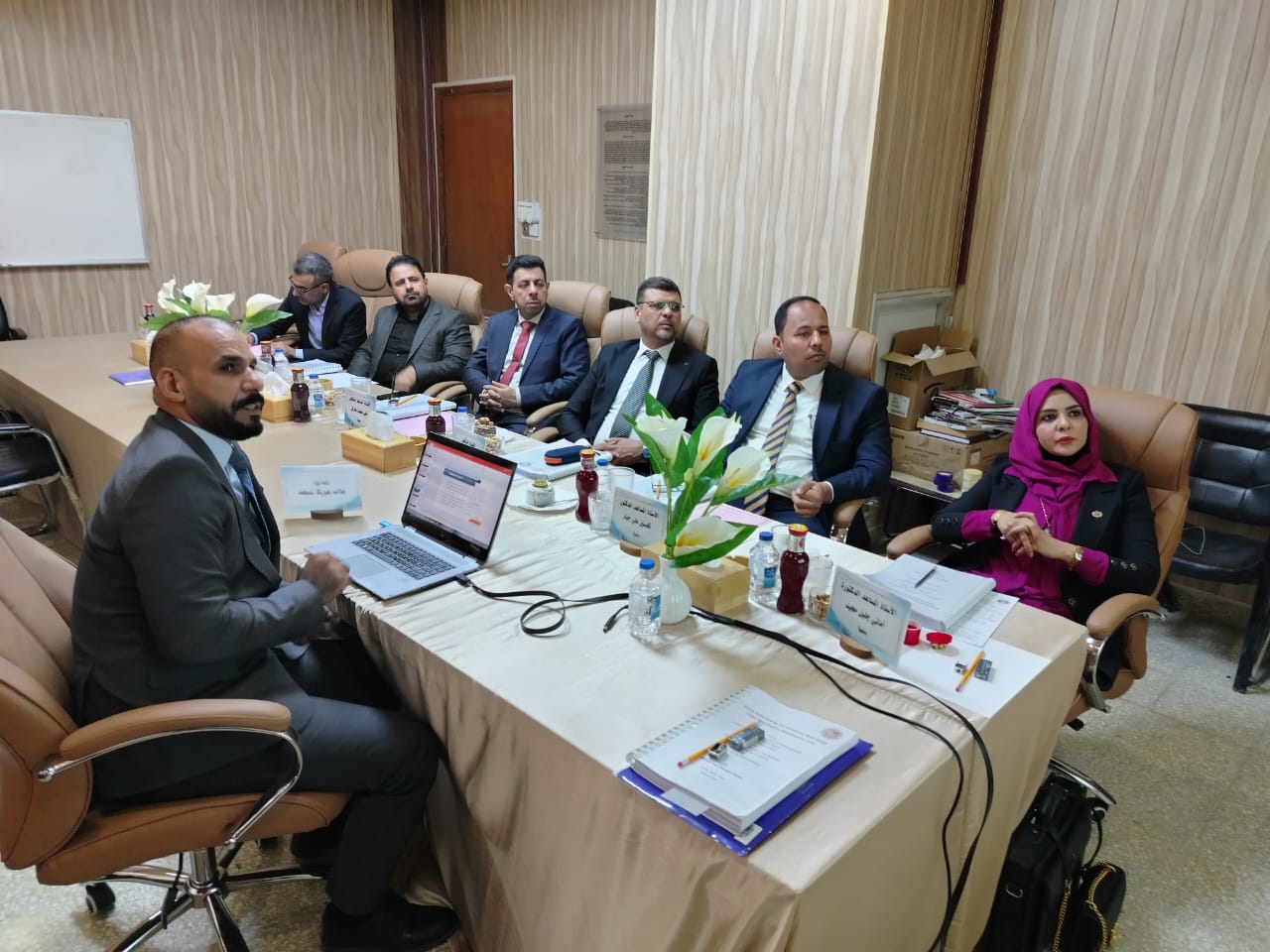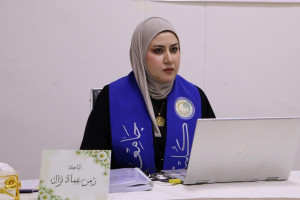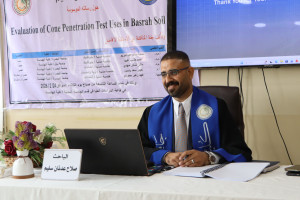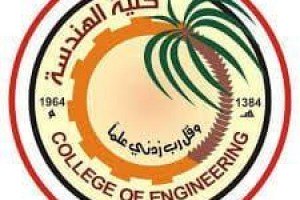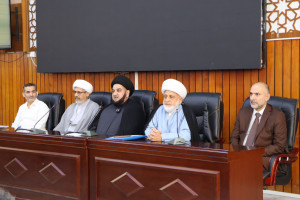
The PhD thesis of the student Mohammed Karim Salem from the College of Engineering, University of Basra, Department of Mechanical Engineering, entitled The use of solar energy in a multi-stage flash evaporation desalination plant in the climate of Basra city was discussed. It includes a summary of the main results of the current study as follows: The productivity of the solar desalination system per unit area of a solar collector at vacuum pressures of 20 kPa, 15 kPa, and 10 kPa was 4.7 kg/day/m2, 5.3 kg/day/m2, and 6.25 kg/day/m2, respectively, and the proposed system is applicable in Basra city when comparing the results with the literature. For the multi-stage once-through desalination unit, peak distillate production occurs in June (159.53 kg/s), with a total water production cost of $1.79/m3, while minimum production occurs in January (83.42 kg/s) with a total water production cost of $2.02/m3 at 40°C. Lowering the final stage temperature to 30°C increases production and reduces the total water production cost for the upper brine temperature of 112°C. The plant has a daily production of 55.44-106 kg/day/m² and a recovery ratio of 12.2% with a solar collector area of 130,000 m². The temperature and pressure are successively decreased through the stages, with the brine cooling from 112°C to 40°C during the flashing stages, releasing steam, which condenses to heat the pre-incoming brine. For a multi-stage desalination unit with brine circulation technology, the highest distillate production, observed in June, is 265.9 kg/s with a total water production cost of $1.69/m³, while the lowest production, observed in January, is 139.1 kg/s with a total water production cost of $1.83/m³, when the upper brine temperature is 112°C and the final stage temperature is 40°C. One of the commonly used performance measures for solar desalination units is the daily distillate production per unit area of the solar collector, which ranges from 92.45 to 176.72 kg/day/m² with a total solar collector area of 130,000 m². The production rate decreases by 23% when the solar collector area is 100,000 m².
The current study aims to utilize the solar energy available in Basrah city by employing Parabolic Trough Solar Collector (PTSC) to drive the Multi Stage Flash (MSF) desalination system, and find the possibility of implementing the Single Stage Flash (SSF) desalination unit through its design, construction, operation, and testing. Then, determine whether Basrah city's climate is suitable for constructing a solar desalination system or not. The integrated system comprises two directly coupled sub-systems: the PTSC and the 24 stages of MSF desalination system. Numerical simulations were conducted using license EBSILON Professional 16.02 (2022) software to assess the system's performance under seasonal variations in solar irradiance availability.

